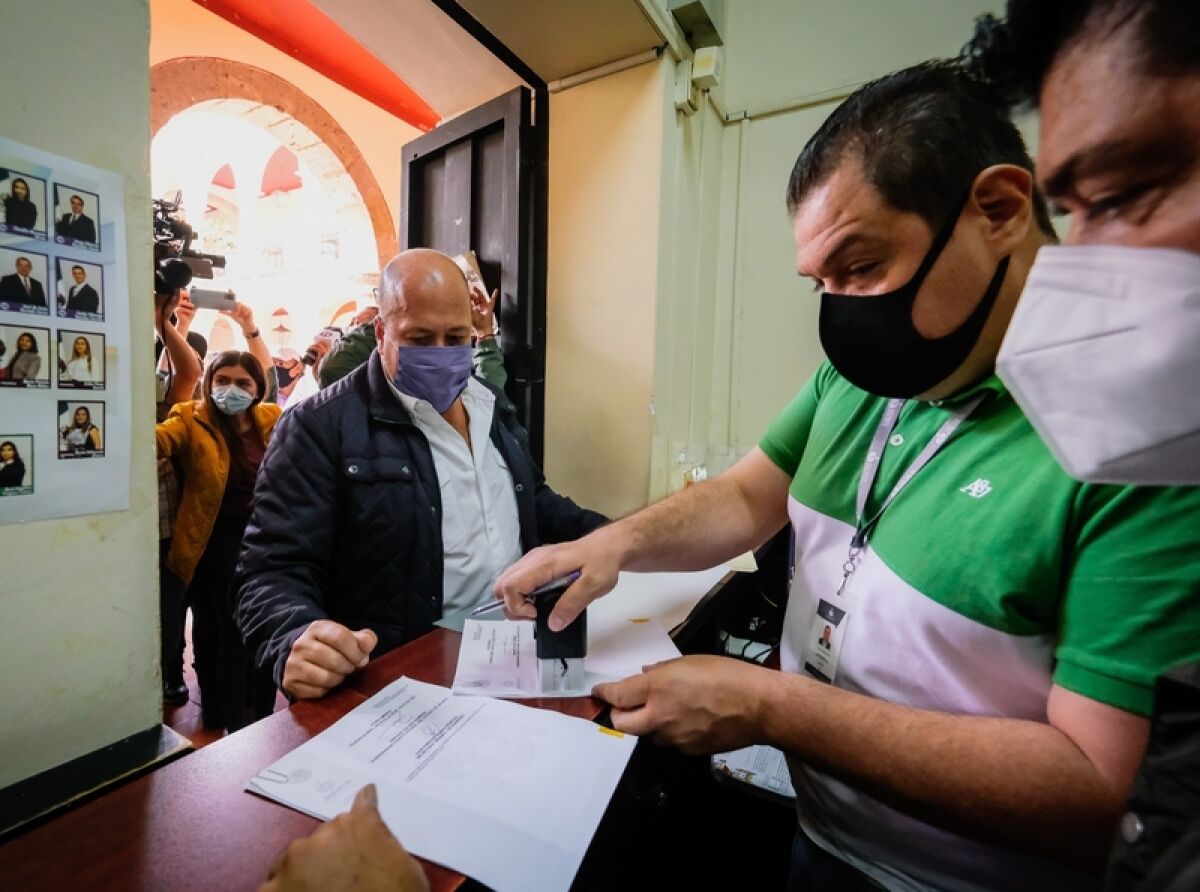The Governor of the State of Jalisco delivered this morning to the State Congress an initiative that, if approved, will prohibit pensions for former state workers from exceeding 106,000 pesos per month.
“The initiative aims to end this shameful history of golden pensions, of the disproportionate payment of pensions to civil servants that occurred in the past, and that today represents an unsustainable financial burden for pensions over time. The actuarial study… seeks to demonstrate technically why this is not feasible, why it is not possible to maintain pensions of up to 200 thousand pesos a month that people are being paid,.. it is a contradiction," said the state president, after delivering the initiative to the State Congress, accompanied by the actuarial study that technically supports the decision not to support the so-called "golden pensions."
The writing stipulates the elimination of a transitory article of the law in which the retroactive application to officials who receive pensions that in some cases exceed 200 thousand pesos per month will be legally defended.
In the legislature, the Governor called on the 87 officials who receive golden pensions of more than 100,000 pesos, not to continue putting at risk the future of the resources of the workers in the service of the State.
"It is an ethical issue, there cannot be pensions of that size in the public service," he said.
He relied on the work of the deputies of the different political forces of the Jalisco Congress, to be able to process the initiative as soon as possible, which is accompanied by a technical and ethical component that was attached to the delivery.
Enrique Alfaro recalled that from the first day of the administration, work has been done on the future viability of the Jalisco State Pension Institute, as well as the financial reconstruction of the Chalacatepec project.
“This is just one of the many work fronts that we have to attend to and that we are attending to, especially the portfolio of pension investments, both financially and real estate, which has undergone a comprehensive review. We are already, for example, as pensions are receiving resources from Chalacatepec that for many years was like an absurd investment, as well as many other cases that are already underway, that is, the financial reconstruction of pensions has been underway since the beginning of the administration."
The modification would be to Article 70 Section II that establishes the limitation to pensions. Currently pensions are capped at 35 days of minimum wage per day, which represents 148,785 pesos per month. With the reform presented by the Governor, they will come down to 25 days of minimum wage per day to106,275 pesos per month, a reduction of 42,510 pesos.
The viability for the proposal to be retroactive and not only for future pensions, has legal support in considerations of the Supreme Court of Justice of the Nation and the Inter-American Court of Human Rights, which established that the adjustments can be made, given the objective of granting financial viability to the pension systems in the State.
“What is the justification so that we can make these adjustments retroactively? Both the court in 2014, and the Inter-American Court in the famous case of five pensioners against Peru, established that these adjustments can be made to give financial viability to the pension systems in the states.
“If these adjustments are not made, the model would not be viable and we would be compromising the future of the workers, ”explained David Bernal, lawyer for the Governor's Office.
As of June there are 87 pensions above 100 thousand pesos, having a monthly impact of 12,139,037 pesos, this means that annually the IPEJAL allocates to maintain these pensions an approximate 145,668,444 pesos.

